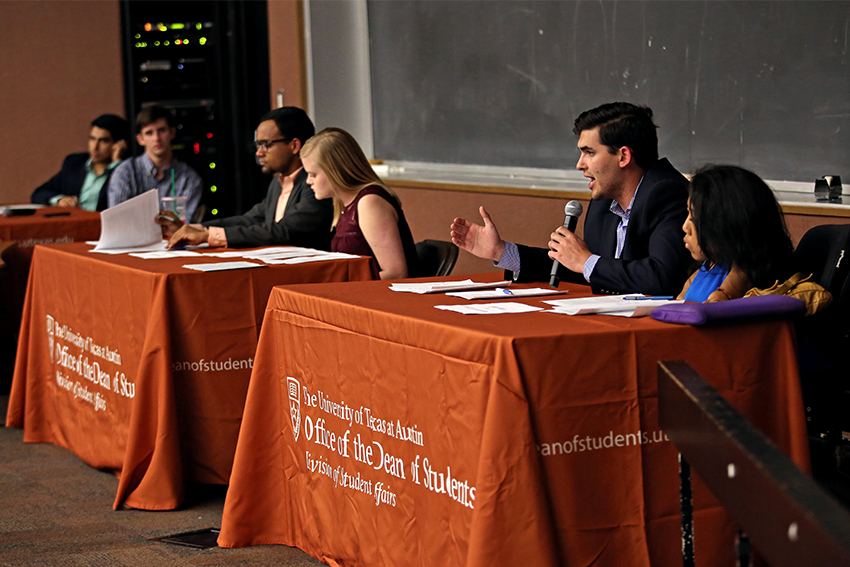Come As You Are. Representing All Longhorns Like You. These slogans of inclusivity have rung in students’ ears for the past few weeks as teams campaign to run for Student Government. But behind these catchy phrases, the policy platforms lack substance for minority students. These candidates fly banners of diversity, but their campaign promises are not viable for minority students on our campus — instead of relying on SG to advance niche interests, students must take action within their communities for tangible change.
The discordance is particularly apparent in Isaiah and Sydney’s campaign. Their video opens with the presidential candidate detailing his identity as a black student raised by a single mother who now relies on financial aid, although his membership with Texas Wranglers and Silver Spurs goes unmentioned here. Sydney presents herself as a woman raised by two parents who participates in Greek life. Representatives from Texas Sweethearts, Fiji and many other social groups follow, claiming this ticket embodies UT.
The message that Isaiah and Sydney’s video wants to communicate — that everyone belongs at UT — is jarring when the viewer considers who is speaking. Of course the students in the video feel comfortable on campus. They belong to groups that cost up to $6000 per semester to participate in, an incredible price tag for lower-income students. They belong to groups that have a history of excluding Latinos, a demographic that makes up 19.5 percent of our undergraduate population. They all belong to groups that solidified their place at UT long ago and do not have to fight significant barriers to exist as they are.
This video highlights a broader issue amongst all SG campaigns that is present in the Guzman-Wolf platform for lower rent and Burley-Guerra’s proposed MLK Day of Service. Although the Executive Alliance hopefuls rally around diversity in theory, SG’s infrastructure cannot produce solutions that support marginalized students in practice.
When Trump’s travel ban affected 110 of UT’s community members, the current SG administration could do nothing but release statements of support for those students. The statement urged students to speak out against bigotry — but when SG itself had the chance to challenge the bigotry demonstrated at the Young Conservatives of Texas Bake sale, it resorted to divisive quarreling that tarnished an opportunity to take any meaningful action.
And even the opportunities SG does have to act in solidarity are contingent on higher authority. The success of AR 35, the legislation that called for the removal of Jefferson Davis’ statue, was a win for black students who grapple daily with our university’s legacy of racism. But SG’s bill only asked the administration to take action — they couldn’t have done it on their own.
At an institution where bureaucracy already makes student affairs needlessly complicated, we do not need an extra body to simply make voices heard. And the word ‘heard’ is not metaphorical — SG is not publishing resolutions online, so physically attending meetings is the only way to keep up with their work.
Students demonstrated their anxiety, fear and dissatisfaction with campus climate at Fenves’s Town Hall, but we do not have to work through SG to address these issues. There are enough student orgs on campus to facilitate discussion and galvanize communities into action. Cocks Not Glocks made their voice heard across the nation. Texas Rising links students directly to the state legislature, where their work informs tangible change.
In the age of Trump, voters are concerned about the various elected officials responsible for shaping policy. The SG Executive Alliance should not be one of them. Instead, students may want to get involved with grassroots organizations on campus and pay more attention to municipal and state level politics, where the real power lies.
Larcher is a Plan II and economics freshman from Austin. Follow her on twitter @veg_lomein.





















